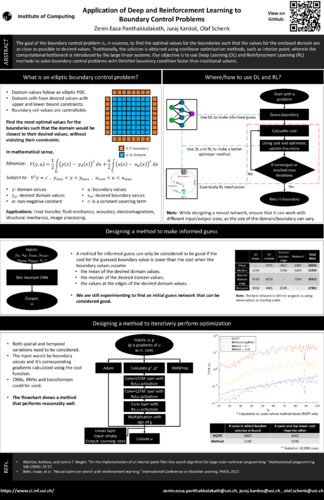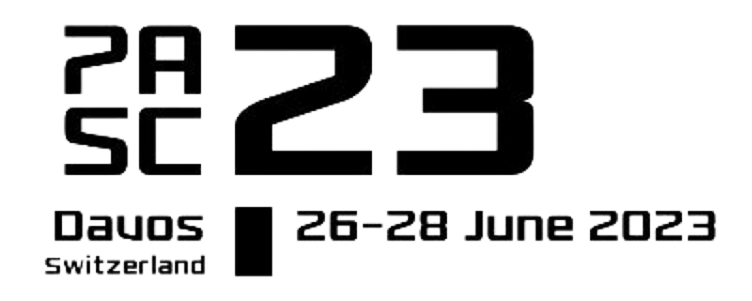Presentation

P10 - Application of Deep Learning and Reinforcement Learning to Boundary Control Problems
Presenters
DescriptionMany scientific problems, such as fluid dynamics problems involving drag reduction, temperature control with some desired flow pattern, etc., rely on optimal boundary control algorithms. These forward solves are performed for multiple simulation timesteps, and hence, a method to solve the boundary control problem with fewer computations would expedite these simulations. The goal of the boundary control problem is, in essence, to find the optimal values for the boundaries such that the values for the enclosed domain are as close as possible to desired values. Traditionally, the solution is obtained using nonlinear optimization methods, such as interior point, wherein the computational bottleneck is introduced by the large linear systems. Our objective is to use deep learning methods to solve boundary control problems faster than traditional solvers. We approach the problem using both supervised and unsupervised learning techniques. In supervised learning, we use traditional solvers to generate training, testing and validation data, and, use Convolutional Neural Networks and/or Spatial Graph Convolutional Networks. In unsupervised learning, we use reinforcement learning wherein the reward function is a function of the network prediction, desired profile, governing differential equation and constraints. The computational experiments are performed on GPU-enabled clusters, demonstrating the viability of this approach.
TimeTuesday, June 2719:30 - 21:30 CEST
LocationHall
SessionPoster Session and Reception
Event Type
Poster


